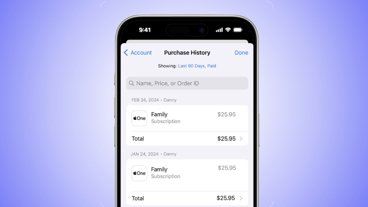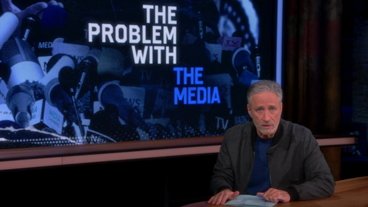Previously, the studios have pressed advanced copies of their films to the tens of thousands of members who vote on them, but those DVDs are easy to pass off to other people, and ripping the media is trivial to do. That results in early copies of the studio's best films seeing widespread unauthorized distribution before they even go on sale to the public.
To combat the problem, according to a report by LA Times, Fox Searchlight set up a special purpose rental code with Apple's iTunes to deliver "Black Swan" and other nominees to the nearly 100,000 members of the Screen Actors Guild this month.
The privately distributed code allows voters to view the movie within a 24 hour period, just like conventional iTunes rentals. Other studios have followed suit, including Paramount Pictures and Focus Features.
Awards garner views, bootlegging kills sales
While it isn't impossible to break the DRM on iTunes Movies, the problem isn't seen as being one created by direct ripping of the films by voting members of the award groups. Instead, the report cited studio executives and law enforcement as saying the actual uploading of DVDs to torrent sites "is typically done by someone several steps removed from the recipient, often without that person's knowledge."
While the studios print warnings on the custom movies that instruct viewers to destroy the DVDs and not distribute them, it's very easy for friends or family members to pass them around. iTunes erects a separate barrier that makes casual distribution that much more difficult, so it is seen as a way to prevent movies from getting into the hands of those who would want to widely distribute them.
Illegal distribution of movies is seen as a problem that costs studios billions. Since 2006, DVD sales have slid from $20.6 billion to just $14 billion last year. Most of that loss is blamed on video recordings of movies, but early films distributed to award voters is also recognized to be a major problem.
Attempts to stop award bootlegging
Beginning in 2004, some studios experimented with distributing custom "SV-300" DVD players incorporating stronger DRM, but that was abandoned as unwieldy and complicated because voters didn't want to haul around a single purpose DVD player, particularly during the voting months that typically fall into the winter holiday season.
In 2008, the report noted that widespread distribution of "Slumdog Millionaire," "Australia," and "The Curious Case of Benjamin Button" were tracked back to two men using digital watermarks; the pair were convicted of felony copyright infringement.
Warner Bros. and Sony Pictures already have sales agents (who are in charge of selecting movies for airlines and cruise ship licensing) screen advanced copies of their films from a secured website intended to make redistribution more difficult.
Apple's iTunes offers benefits that DRM-protected, web-based streams don't. David Kaplan, a senior vice president of anti-piracy at Warner Bros, told reporters, "I don't know how thrilled filmmakers would be to have their films seen on a laptop instead of a flat-screen TV."
Via iTunes, the studio could offer playback of its Oscar nominated movie "Inception" in a format that isn't tied to a web browser, allowing Academy voters to watch the film on their HDTV rather than being tied to a computer.
 Daniel Eran Dilger
Daniel Eran Dilger






-m.jpg)






 Charles Martin
Charles Martin
 Christine McKee
Christine McKee
 Wesley Hilliard
Wesley Hilliard
 Malcolm Owen
Malcolm Owen
 Andrew Orr
Andrew Orr
 William Gallagher
William Gallagher
 Sponsored Content
Sponsored Content








42 Comments
How do you strip tr movies of their drm? I'm not posting it to anything or sharing it. I just want to keep vids longer than the rental period.
Movie studios are seeking to distribute their award nominated films to Academy and Screen Actors Guild voters using Apple's iTunes rather than conventional DVDs, in hopes of limiting piracy of the pre-release films. ...
This is a neat idea, but I've never understood why it was so hard to figure out who was leaking the stuff in the first place.
Every torrent I've ever seen of an Oscar candidate at this time of year has "Property of Weinstein Company" right across the screen.
Just arrest those guys.
How do you strip tr movies of their drm? I'm not posting it to anything or sharing it. I just want to keep vids longer than the rental period.
Oh, I see. You don't want to share, you just want to steal (and don't know how to use Google).
Do you know how ridonkuously easy it is to remove DRM from anything iTunes? You drag and drop a file into "abc program" and that's pretty much it.
iTunes files are very convenient too because the files don't have to be ripped and decrypted to the computer from optical drive. The file is already ripped and half ready.
ipa, m4a, and m4v files are everywhere.
Oh, I see. You don't want to share, you just want to steal (and don't know how to use Google).
The race has been already won.
This is a neat idea, but I've never understood why it was so hard to figure out who was leaking the stuff in the first place.
Every torrent I've ever seen of an Oscar candidate at this time of year has "Property of Weinstein Company" right across the screen.
Just arrest those guys.
Yes, arrest the Weinsteins.